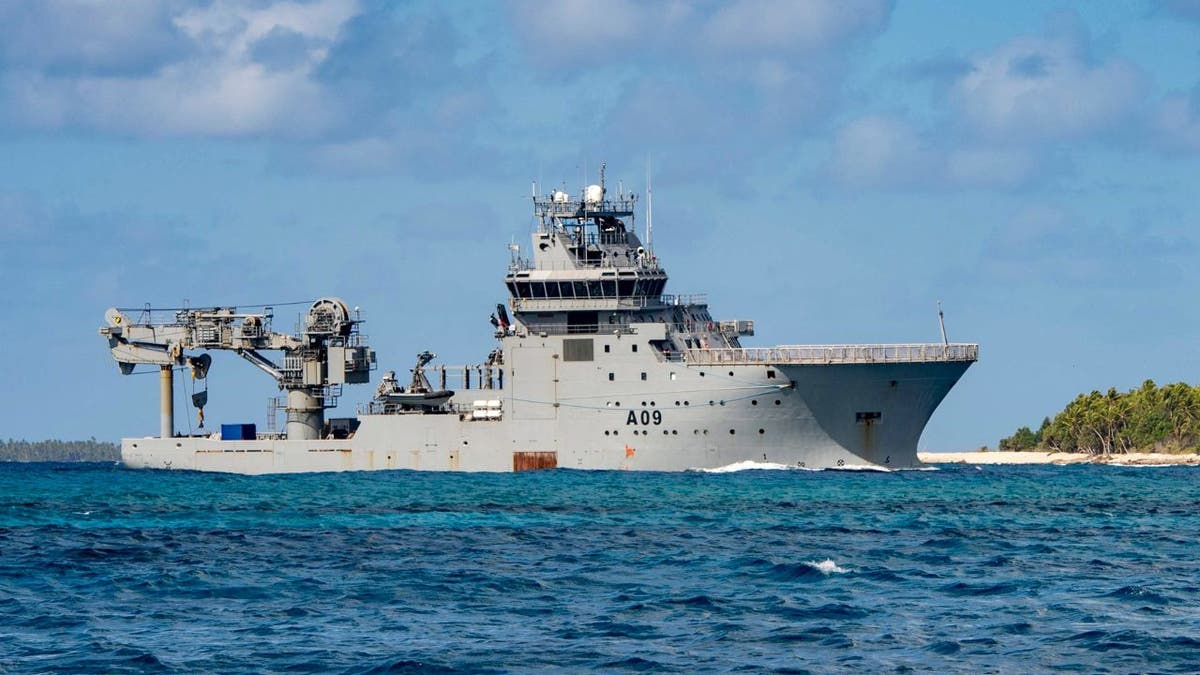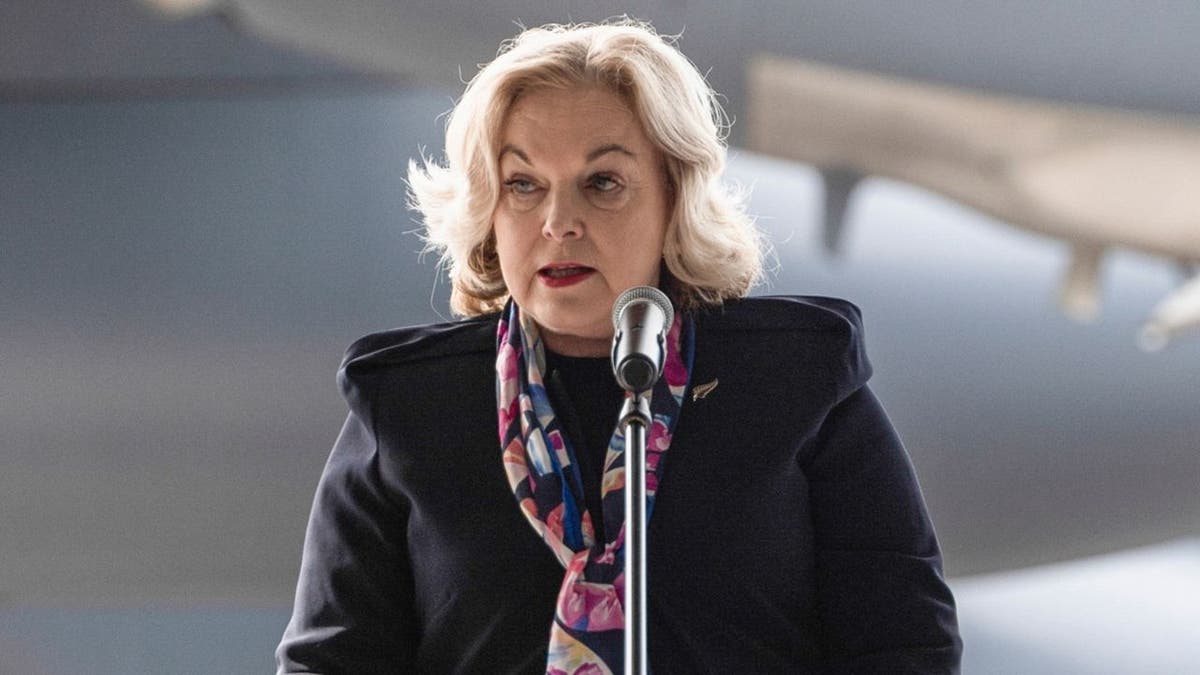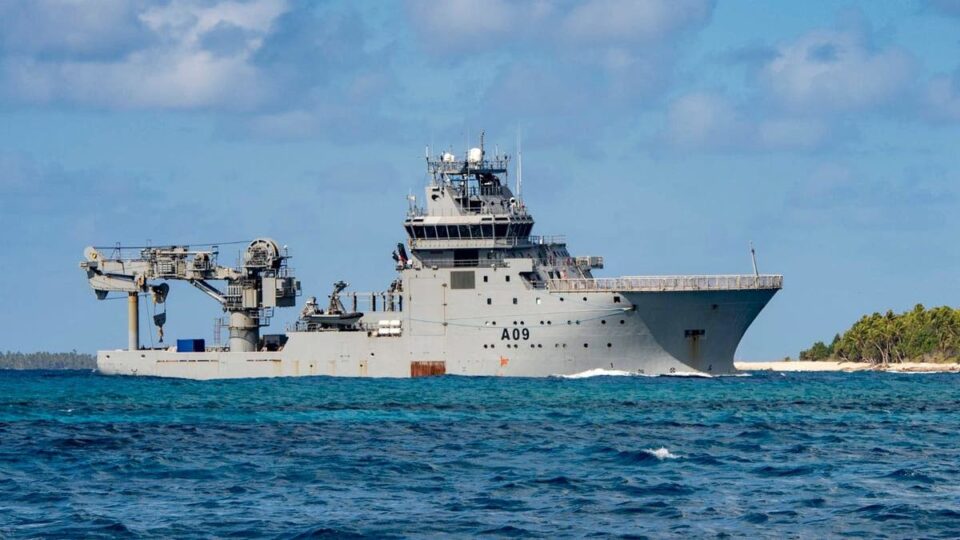New Zealand’s Defense Minister has clapped back at claims that the appointment of a female to captain a $61 million navy ship ultimately led to its sinking.
The navy’s specialist dive and hydrographic vessel, The Manawanui, sank on Sunday on a reef off the coast of Samoa that it was surveying. Its 75 crew and passengers were ordered to abandon the vessel on life rafts and were later rescued. The sinking marked New Zealand’s first ship lost since World War II and an investigation has been launched into what led to its demise.
The incident sparked debate online about whether the captain, Commander Yvonne Gray, was hired, in part due to her gender and sexuality in accordance with diversity, equity and inclusion (DEI) ideology.
TRUMP ASSASSINATION ATTEMPT SPARKS INVESTIGATION OF SECRET SERVICE DEI POLICIES: ‘COMPROMISED ITS MISSION’

The HMNZS Manawanui pictured in 2022. (Christopher Weissenbornnzdf via AP)
Judith Collins, who is New Zealand’s first female defense minister, rebuked such claims and said there is a “misogynistic narrative” surrounding the sinking. The cause of the sinking has yet to be determined.
“A court of inquiry has been stood up to establish what caused this terrible incident. “The one thing that we already know did not [because] it is the gender of the ship’s captain, a woman with 30 years’ naval experience who on the night made the call to get her people to safety,” Collins said.
She said she was appalled to see the comments online from “armchair admirals, people who will never have to make decisions which mean life or death for their subordinates.”
AMERICAN UNIVERSITIES ARE REBRANDING DEI DEPARTMENTS INSTEAD OF ELIMINATING THEM, STUDY FINDS

Lieutenant Commander Tala Mafile’o of the Royal Tongan Navy presents Commander Yvonne Gray, left, with a carved wooden bowl as a memento of the RNZN’s participation in the 50th Anniversary Fleet Review. (New Zealand Defence Force via AP)
“I thought seriously in 2024 what the hell is going on here with people who are sitting there in their armchair operating a keyboard making comments about people that they do not know, about an area they do not know and they are just vile. Where’s a bit of decency,” Collins said.
She added women in uniform were being abused in the street following the incident.
“This is outrageous behavior and New Zealand is not known for this and we are better than it,” she added. “We are all appointed on merit, not gender,” she added.
The vessel lost power and ran aground on Saturday evening one nautical mile off the southern coast of the Samoan island of Upolu. By Sunday morning, the vessel was “listing heavily,” and smoke was spotted around 6:40 a.m., the navy said. By 9 a.m. the ship slipped below the surface.

Judith Collins, New Zealand’s defense minister, has rebuked claims that the appointment of a female captain to commandeer a $61 million navy ship ultimately led to its sinking. (AP )
The sinking prompted fears of a major fuel spill. On Thursday, officials in Samoa said while the vessel was leaking oil from three places, the amount was decreasing each day and was dissipating quickly due to strong winds in the area.
Passengers, including civilian scientists and foreign military personnel, left the vessel on lifeboats in “challenging conditions” and darkness, New Zealand’s Chief of Navy Rear Admiral Garin Golding told reporters after the sinking.
The vessel had been in service for New Zealand since 2019, was 20 years old and had previously belonged to Norway. The military said the ship, purchased for $61 million ($100 million NZ dollars), was not covered by replacement insurance.
The Associated Press and Reuters contributed to this report.
